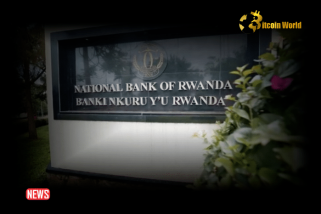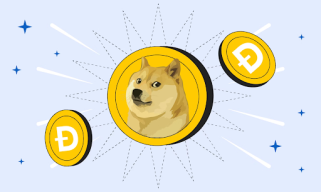
Rwanda Central Bank Embarks on Innovative Retail CBDC Project
르완다 중앙은행, 혁신적인 소매 CBDC 프로젝트 착수
The National Bank of Rwanda (BNR) has unveiled its comprehensive feasibility study on a retail central bank digital currency (CBDC), now open for public feedback.
르완다 국립은행(BNR)은 소매 중앙은행 디지털 통화(CBDC)에 대한 포괄적인 타당성 조사를 공개했으며 현재 대중의 피드백을 받고 있습니다.
BNR envisions a national digital currency tailored to Rwanda's unique conditions, leveraging technological advancements and addressing local challenges. A retail CBDC would accelerate the country's cashless economy initiative and bolster the resilience of its financial system, which faces intermittent power outages.
BNR은 르완다의 독특한 조건에 맞춰 기술 발전을 활용하고 지역 문제를 해결하는 국가 디지털 통화를 구상합니다. 소매 CBDC는 국가의 현금 없는 경제 계획을 가속화하고 간헐적인 정전에 직면한 금융 시스템의 탄력성을 강화할 것입니다.
Despite its cashless aspirations, the central bank estimates spending $35 million on printing and maintaining its cash supply over the next five years.
현금 없는 열망에도 불구하고 중앙은행은 향후 5년 동안 인쇄 및 현금 공급 유지에 3,500만 달러를 지출할 것으로 추산합니다.
BNR proposes an interest-free, intermediated CBDC that seamlessly integrates with existing payment systems and potentially other CBDCs, subject to amendments to the Central Bank Act. The recommended model is token-based, enabling offline transfers via Bluetooth or Near Field Communication (NFC) without requiring smartphones. This contrasts with current electronic payment options.
BNR은 중앙은행법 개정에 따라 기존 결제 시스템 및 잠재적으로 다른 CBDC와 원활하게 통합되는 무이자 중개 CBDC를 제안합니다. 권장 모델은 토큰 기반으로, 스마트폰 없이도 블루투스나 NFC(Near Field Communication)를 통해 오프라인 전송이 가능하다. 이는 현재의 전자 결제 옵션과 대조됩니다.
Open programmability and smart contracts offer potential benefits, but the study acknowledges the trade-off with privacy and security. The BNR anticipates "partial pseudo-anonymity" for the CBDC.
개방형 프로그래밍 가능성과 스마트 계약은 잠재적인 이점을 제공하지만 연구에서는 개인 정보 보호 및 보안과의 상충 관계를 인정합니다. BNR은 CBDC에 대해 "부분적인 의사 익명성"을 기대합니다.
Payment service providers currently account for less than 0.9% of Rwanda's financial sector, facing challenges such as low financial literacy, high remittance costs, and a significant informal economy. The BNR believes reducing cash in circulation could formalize more of the economy.
현재 결제 서비스 제공업체는 르완다 금융 부문에서 0.9% 미만을 차지하고 있으며, 낮은 금융 지식, 높은 송금 비용, 상당한 비공식 경제 등의 문제에 직면해 있습니다. BNR은 유통되는 현금을 줄이면 경제가 더 많이 공식화될 수 있다고 믿습니다.
The study recommends user fees and holding limits, but details are yet to be defined. Public acceptance of the CBDC remains an open question.
이 연구에서는 사용자 수수료와 보유 한도를 권장하지만 세부 사항은 아직 정의되지 않았습니다. CBDC에 대한 대중의 수용 여부는 아직 공개되지 않았습니다.
BNR favors a distributed database model for reliability, utilizing the World Economic Forum's CBDC Policy-Maker Toolkit for analysis.
BNR은 분석을 위해 세계 경제 포럼(World Economic Forum)의 CBDC 정책 결정자 툴킷을 활용하여 안정성을 위해 분산 데이터베이스 모델을 선호합니다.
Tokenized wholesale CBDC projects have been explored by Mastercard, Ripple, the European Central Bank, and the Bank for International Settlements' Project Agora. Tokenization in a retail CBDC may represent a novel innovation.
토큰화된 도매 CBDC 프로젝트는 Mastercard, Ripple, 유럽 중앙 은행 및 국제 결제 은행의 Project Agora에서 탐색되었습니다. 소매 CBDC의 토큰화는 새로운 혁신을 나타낼 수 있습니다.
Offline CBDC transfers are also an active research area. China's digital yuan incorporates solutions similar to those proposed by the BNR.
오프라인 CBDC 전송도 활발한 연구 분야입니다. 중국의 디지털 위안에는 BNR이 제안한 것과 유사한 솔루션이 포함되어 있습니다.
Disclaimer: The information provided is not trading advice. Bitcoinworld.co.in holds no liability for any investments made based on the information provided on this page. We strongly recommend independent research and/or consultation with a qualified professional before making any investment decisions.
면책조항: 제공된 정보는 거래 조언이 아닙니다. Bitcoinworld.co.in은 이 페이지에 제공된 정보를 기반으로 이루어진 모든 투자에 대해 책임을 지지 않습니다. 투자 결정을 내리기 전에 자격을 갖춘 전문가와의 독립적인 조사 및/또는 상담을 강력히 권장합니다.
Binance #WRITE2EARN
바이낸스 #WRITE2EARN


 Crypto News Land
Crypto News Land Optimisus
Optimisus Cryptopolitan_News
Cryptopolitan_News DogeHome
DogeHome Cryptopolitan
Cryptopolitan crypto.ro English
crypto.ro English Crypto News Land
Crypto News Land






















